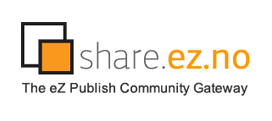eZ Publish Search Engine Optimization
Saturday 17 June 2006 1:22:00 pm
eZ Publish supports the development of multilingual websites. Many editors can work independently with different translations of a single object. Usually a separate siteaccess is created for each of the translated sites. Each has its own URL, as the following example of English, German and Polish versions shows:
http://www.example.com/en
http://www.example.com/de
http://www.example.com/pl
The language, localization and charset of each site is set in the main template ( pagelayout.tpl file) of every siteaccess. As an example, a site in the English language with Great Britain localization has the following XHTML code:
<html xmlns="http://www.w3.org/1999/xhtml" xml:lang="en-GB" lang="en-GB"> <head> <meta http-equiv="Content-language" content="en-GB" /> <meta http-equiv="charset" content="iso-8859-1" /> </head> </html>
While search engines can ( to a degree) determine the language of a site on their own, the additional parameters help search engines classify the site more exactly according to the language, localization and charset. This is useful when people search for information specific to a country or language.
Improved support for multilingual sites was added in the 3.8 release of eZ Publish. The most relevant aspect for search engine optimization is the generation of unique URLs for every object translation. For example:
http://www.example.com/en/first_folder/second_articles_title
http://www.example.com/pl/pierwszy_folder/tytul_drugiego_artykulu
Both addresses have appropriate titles that include their Polish and English names.
